Guidance notes for newsletter contributors
J R Klinck, ILTS Director of Special Projects
10 April 2019
The ILTS newsletter has been published since 2014, twice monthly until October 2018 by the Texas-based firm Multiview, then monthly since November by ILTS headquarters staff in Berlin. Its purpose is to update members and others with a professional interest in liver transplantation on ILTS activities, upcoming meetings, and recent scientific papers. A data protection-compliant circulation of >10,000 recipients has been built, and the newsletter has recently been integrated with ILTS social media initiatives. MailChimp software is used in its design, layout, distribution, analytics and archiving.
This guide describes the structure, content and general approach to the newsletter developed over the last five years and recently re-invigorated by the new in-house production team. We hope that its circulation and value to readers will grow further with fresh input from our headquarters staff and new contributors.
Regular Content
OPENING COMMENTARY: a brief overview of important ILTS news and events, usually as a ‘presidential letter’
UPCOMING ILTS MEETINGS
WHAT WE’RE READING
MOST VIEWED ARTICLES
SOCIETY NEWS
OTHER UPCOMING MEETINGS
All the above sections except WHAT WE’RE READING are drafted by ILTS staff and edited by John Klinck (Cambridge, UK) and Andrea Olmos (San Francisco, USA).
Designated Vanguard Committee members select scientific content for WHAT WE’RE READING. Current contributors are:
- Amelia Judith Hessheimer
- Michael Spiro
- Isabel Campos Varela
Contributors please note:
Latest Pubmed abstracts can be retrieved by free subscriptions to the search engine Pubcrawler(http://pubcrawler.gen.tcd.ie, search term ‘Liver Transplantation’), National Library of Medicine (NCBI) alerts, and designated journal eTOCs.
Select the three best articles in your specialty. You can submit fewer or more than three if you judge that quality and value to readers justify this.
Selected papers should be clinical, not focused on basic science unless exceptionally important.
Reviews are acceptable if they are regarded as important and have a useful abstract (or are Open Access), and as long as there are no original papers of greater interest in the preceding month.
Unless the article is designated Open Access, or is published in an Open Access journal (e.g. Transplant Direct, PLoS One), the newsletter can only use the Pubmed abstract. Publishing full text in the newsletter without permission breaches copyright.
The format for selected abstracts should be as follows, submitted as a Word document:
- JOURNAL TITLE
If the article is from the ILTS official journal Transplantation, ‘(FREE TO ILTS MEMBERS)’ should appear after the journal title.
If the article is available Open Access ‘(FREE FULL TEXT)’ should appear after the journal title.
- ARTICLE TITLE
- PUBMED LINK (or URL to publisher’s version of abstract)
- ABSTRACT TEXT
Submit full abstract but highlight first 1-3 sentences in yellow to designate text that should appear on newsletter front page, giving an idea of abstract content. The rest of the abstract will be set up to appear under a READ MORE… link.
Commentary on your selected abstracts is welcome and will be attributed to you as ‘Read commentary by YOUR NAME…’. The text will not appear on the front page, but under a dedicated link.
Please format and submit your commentary as follows:
- Arial font
- Title 16-point and centered
- Body text 11-point and left justified
- Submit in both .doc and .pdf formats.
Try to keep your commentary short (under 250 words) to make it more readable, effective and sustainable. Try not to simply re-write the abstract – consider any of the following approaches:
- Outline as concisely as possible the research question, key findings, caveats, and what the study adds to previous knowledge, OR
- Give your opinion on the strengths and weaknesses without recapping the abstract – assume that the reader has read it (if your commentary is interesting they will go back and read it), OR
- Reflect on your reading of the full text paper, e.g. whether the data supports, understates and overstates the conclusions, OR
- Comment on the general context and unanswered questions for future research.
ILTS staff will aim to circulate a complete newsletter draft to all editors before publication. Please check that your abstract links and commentaries load on all your devices and notify ILTS staff if any problems.
Ordering of abstracts
The editors will tend to feature abstracts from the official ILTS journal Transplantation at or near the top of the listing, although papers in other journals can supersede these if especially important or newsworthy. Abstracts on related topics will be grouped together.
When your selection and commentaries are done, send it to John Klinck and Andrea Olmos.
Work schedule and deadlines
- KIT Staff will first draft the newsletter with internal content by the 2nd Friday of the month
- Vanguard contributors should send their abstract selections and commentaries to andrea.olmos@ucsf.edu no later than the 3rd Monday of each month, copying in both john.klinck@btinternet.com and ilts@ilts.org
- Andrea will send both commentaries with edits using Track Changes and articles order to ilts@ilts.org
- ILTS staff will draft the non-scientific sections of the newsletter by the same date, then merge this with above scientific content, add to MailChimp, and send a Word version to the editors.
- The editors will use the Track Changes option in Word to modify this draft, returning it within 3 days.
- This version will be updated in MailChimp and checked by the editors within one working day.
- Publication should be on the 4th Tuesday of the month, or up to two days later if in the same month.
2020 submission deadlines for abstract selections and commentaries are as follows:
January 15th
February 14th
March 16th
April 15th
no Newsletter in May, month of the ILTS Annual Congress
June 15th
July 15th
August 14th
September 15th
October 15th
November 16th
December 11th
Newsletter submission day: Analysis has shown that newsletters sent out on Tuesdays, Wednesdays and Thursdays have better open-click ratios. Readers tend to give lower priority to this type of email on Mondays and Fridays.
Newsletter development
Opening rates will be monitored. Variations in format and distribution timing will be trialled to optimise value for both readers and sponsors. Contributors will be consulted if any trial proposes to alter or omit any part of their content.





